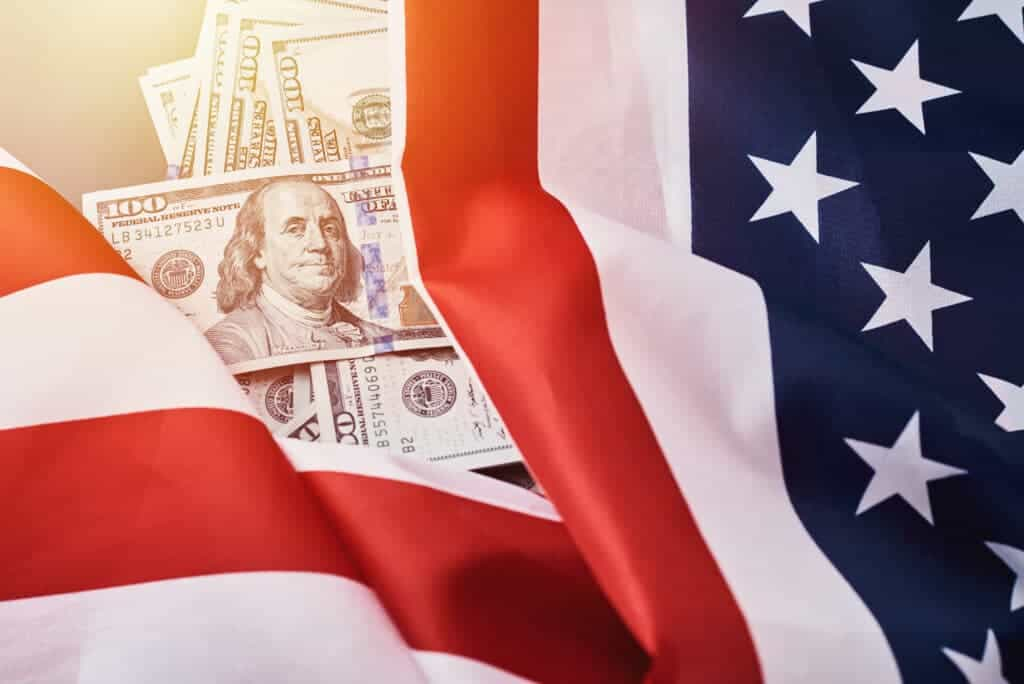Top executives from the crypto industry convened at a hearing yesterday to discuss the risks and challenges posed by digital assets.
Appearing at the hearing was Jeremy Allaire of Circle, Sam Bankman-Fried of crypto exchange FTX, Brian Brooks of Bitfury, Charles Cascarilla of Paxos, Denelle Dixon of Stellar Development Foundation, and CFO of Coinbase Global Alesia Jeanne Haas.
One of the topics that was brought up was the threat of cryptocurrency on the US dollar’s status as the reserve currency of the world.
Ritchie Torres, a representative from South Bronx, New York, asked the crypto executives if it stablecoins were contradictory to the dollar’s reserve status. In response, Charles Cascarilla, CEO of Paxos, said that stablecoins empower the dollar by inviting more people into the dollar-based economic system who wouldn’t be able to otherwise.
“I actually don’t think that it’s contradictory at all. What people want is s a US dollar bank account. Everyone in the world wants to be able to have US dollars, and actually, that’s the hardest thing to get. Crypto is a tool for a lot of different things including bringing communities together, but what people want for their everyday spending is dollars. If you’re in Argentina you want dollars, if you’re somebody anywhere in the world you want to have access to dollars and that’s the hardest thing to get access to right now and that’s why tokenized dollars is so valuable because you don’t need a bank account yet you can have access to the dollar-based system, which is a very important tool for inclusion.”

Circle CEO Jeremy Allaire also made the case that stablecoins were strengthening the US dollar, and predicted that USD-backed stablecoins would continue to dominate the crypto space despite China issuing its own digital yuan.
He noted that USD-backed stablecoins were doing trillions of dollars of transactions while the Chinese digital yuan had only done about $10 billion in transactions so far. Allaire also argued dollars were more secure on the blockchain than in the bank, given that banks tend to lend out their dollars under a fractional reserve system.
The crypto executives' arguments for stablecoins being conducive to USD supremacy has been echoed by Mike McGlone, Bloomberg’s head commodity strategist. McGlone argues that stablecoins, or “crypto dollars,” are acting as a significant boost for USD dominance. In Bloomberg’s latest report on cryptocurrencies, McGlone says that crypto dollars, along with Bitcoin and Ethereum, are the three “stalwarts” behind the sector.
“The ability to transact and transmit dollars around the clock with instant settlement, and to earn interest well above eurodollars, are attributes of crypto dollars, with implications for digital assets like Ethereum. This has buoyed the greenback and trickled down to most financial assets. In a world rapidly going digital, the shift to transacting via digital tokens may be unstoppable…
Bumps in the road can be expected, but the advent of central-bank digital currencies has already happened organically, and the world has gone for the dollar.”
Disclaimer: These are the writer’s opinions and should not be considered investment advice. Readers should do their own research.

